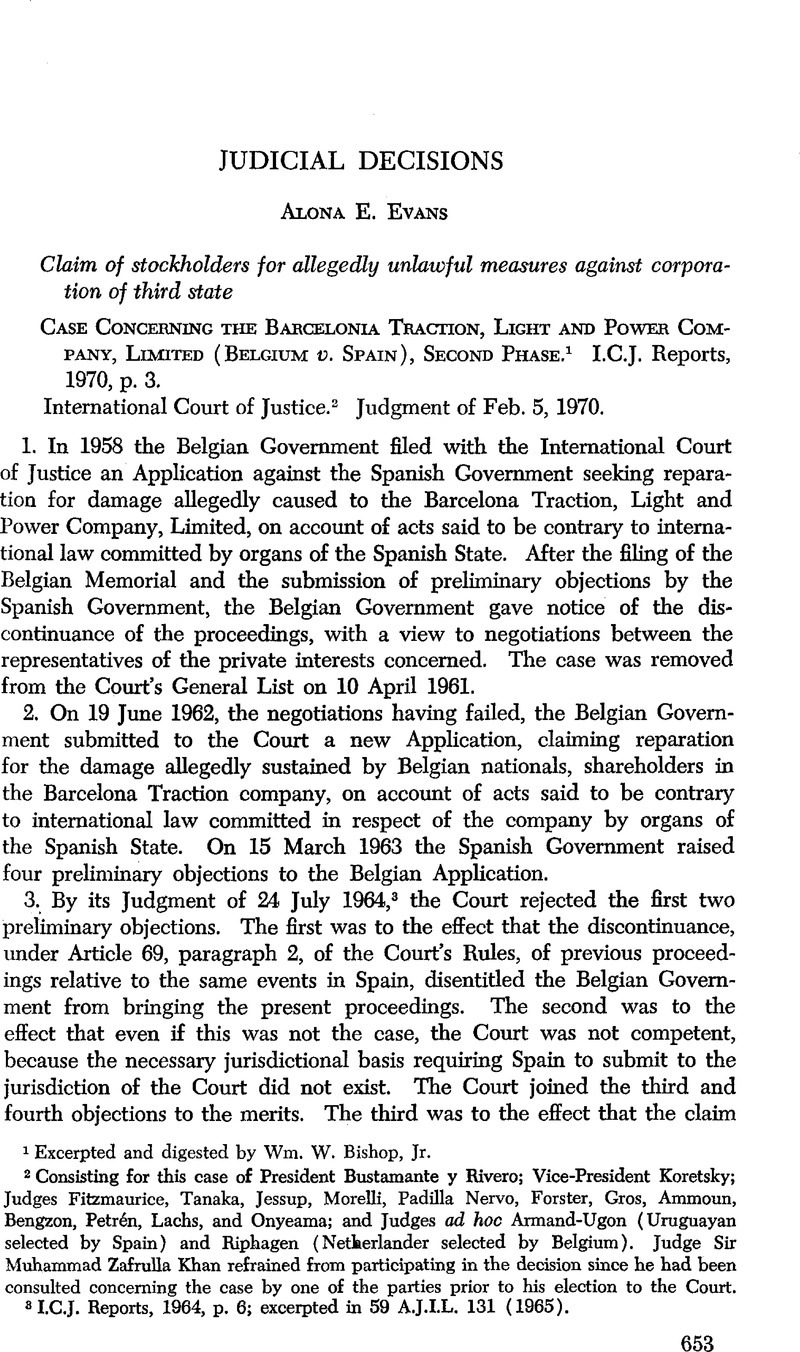Published online by Cambridge University Press: 28 March 2017

1 Excerpted and digested by Wm. W. Bishop, Jr.
2 Consisting for this case of President Bustamante y Rivero; Vice-President Koretsky; Judges Fitzmaurice, Tanaka, Jessup, Morelli, Padilla Nervo, Forster, Gros, Ammoun, Bengzon, Petr6n, Lachs, and Onyeama; and Judges ad hoc Armand-Ugon (Uruguayan selected by Spain) and Riphagen (Netherlander selected by Belgium). Judge Sir Muhammad Zafrulla Khan refrained from participating in the decision since he had been consulted concerning the case by one of the parties prior to his election to the Court.
3 I.C.J. Reports, 1964, p. 6; excerpted in 59 A.J.I.L. 131 (1965).
4 In an omitted passage the Court quoted the earlier submissions by both parties.
1 The Respondent here shares in this agreement. Bindschedler-Robert, (op. cit., p. 174), writing in 1964, considered that this view was being accepted in international law. She cites the well-reasoned and well-documented study by Kiss, “La protection diplomatique des actionnaires dans la jurisprudence et la pratique Internationale”, in La personalitémoral et ses limites, (1960), p. 179. Kiss indeed cites abundant authority for even broader rights to protect shareholders; he refers to Borchard, Ch. De Visscher, Sibert, Ralston, Fitzmaurice, Pinto, Paul De Visscher, Perry, Séfériades, Jones, Guggenheim, Battagliani, Bindschedler, but query whether all these carry their conclusion as far as does Kiss. See also in support of the broader rule allowing protection of shareholders, Agrawala, “State Protection of Shareholders’ Interests in Foreign Corporations”, The Solicitor's Quarterly, 1962, p. 13; Nial, , “Problems of Private International Law”, 101 Hague Recueil, 1960, III, p. 259 Google Scholar. [Judge Jessup's footnote.]